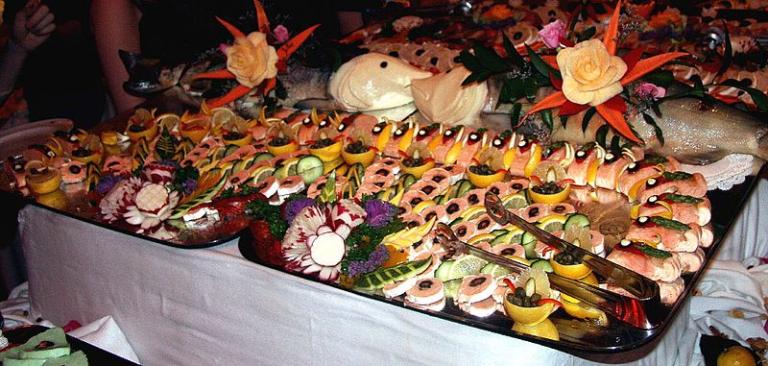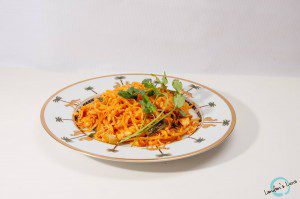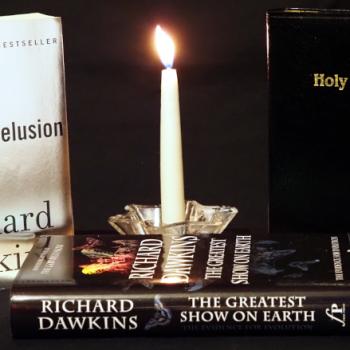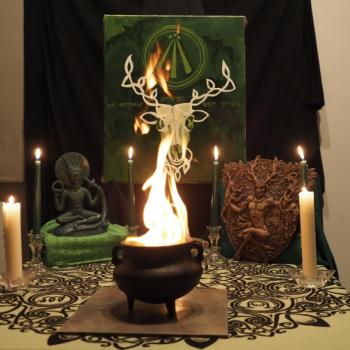Imagine, if you will, a grand buffet of the world’s finest foods. Not a $7.99 feeding trough but a spectacular culinary offering that puts the high-end Las Vegas casinos to shame. You’re hungry, so you grab a plate and start filling it. You really like baked potatoes so you grab one. Haven’t had rice pilaf in a while, get some of that too. Don’t know what this pasta dish is but it looks really good. Um, pizza! Oh, and there’s an amazing chocolate cake – gotta have some dessert. Need something to drink – they’ve got a wheat beer that you’ve been wanting to try.

Would this be a tasty dinner? I suppose – I’ve had worse. Would it be a healthy meal? Not at all.
We all recognize that picking dishes at random (“hey this looks good!”) usually results in a mediocre dinner, much less a healthy long-term diet. So why do many people insist on doing the same thing with their spiritual practices?
Last week’s post 5 Reasons You Can’t Find the Right Spiritual Path generated a lot of comments around the proposition that creating your own path is better than immersing yourself in an established path. I don’t intend to recap or rebut that conversation – as I write this, it’s still going on. Instead, I want to explore the value of religious traditions in the context of a religiously plural society.
Merriam-Webster’s on-line dictionary has a four-part definition of tradition. Go read it if you like – their summary says tradition is “a way of thinking, behaving, or doing something that has been used by the people in a particular group, family, society, etc., for a long time.” It’s not things that were randomly thrown together, but things that have been found to be meaningful and helpful over a long period of time. It’s true that after a few generations people can forget why they maintain a tradition, but – particularly in our contemporary society – if it doesn’t remain meaningful and helpful people will stop doing it.
When you follow a religious or spiritual tradition, you’re following a roadmap left by the ancestors of that tradition. I didn’t have to figure out how to be a Druid – I followed the OBOD roadmap. Alternatively, I could have followed the ADF roadmap, or the AODA, or the RDNA. I still had to do the work, and I still had to figure out how to make Druidry my own, but I didn’t have to reinvent the Druid wheel.
The various courses of a good meal all are part of the same cuisine – they support a culinary theme. Likewise, the elements of a religious tradition support a spiritual theme. All religions are not the same: my polytheistic Druidry has very different assumptions, goals, and methods from the Evangelical Christianity of my childhood. Both have different assumptions, goals, and methods from Tibetan Buddhism. Further, the same element will be done differently in different traditions – Buddhist meditation is different from Catholic meditation is different from Druid meditation. Take the practices out of their context and you lose the connection to the overall theme.
Of course, there is the culinary practice of fusion – taking tastes and dishes from different cuisines and remixing them to create something new. Done right, this can be very good, as any fan of Tex-Mex knows. This can be done spiritually as well – I once had a very senior Druid call what I do Druid fusion.
But by the time I was doing Druid fusion I had completed the OBOD course, read extensively from Isaac Bonewits and other ADF sources, and read enough history to understand the Druid Revival. If I had tried to create my own Druidry from the beginning – much less mix it with, say, Buddhism and Wicca – it’s highly likely I’d still be struggling at the beginning.

Doing fusion well – with food or with spirituality – requires a deep understanding of elements and themes, not just picking things at random because they look appetizing.
Without a tradition it’s hard to get started. Without a tradition it’s even harder to move beyond the basics. If there’s nothing to tell you that crab legs are delicious, you’re not likely to ever try to eat them. They look creepy and eating them is a lot of work!
Good religion is a lot of work.
As others have pointed out, your task is to find the right spiritual path for you – which may not be the right path for those around you. There’s no good reason why diving deeply into one tradition should lead to insisting your favored tradition is the One True Way. The problem isn’t with diving deeply into a tradition – the problem is with fundamentalism in general and aggressive monotheistic fundamentalism in particular. Practice deeply but hold your beliefs loosely.
If you’ve spent your whole life subsisting on beans and rice, it’s understandable and even desirable to sample from many sections of the buffet. See what’s out there, see what appeals to you, and most importantly, see what nourishes your body and your soul.
But at some point, pick a cuisine. Pick a spiritual tradition and start diving deeply into it. If after a year or three or five it isn’t nourishing your soul, try something else. But before you rush back to the spiritual buffet, make sure you’ve practiced your chosen tradition long enough and deeply enough to understand why it didn’t work for you, and what might be a better choice next time.

















